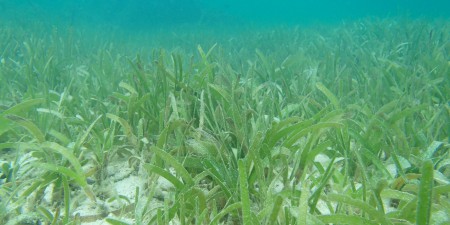The term coral reef perhaps conjures images of a paradise for living things, appearing spontaneously in the middle of perfectly blue tropical ocean waters. And, indeed, coral reefs represent one of the most productive ecological systems on Earth. But how is it possible for an ecological system lying in the middle of perfectly blue ocean waters—which are nutrient-poor ocean regions with very low concentrations of nutrient salts—to persist and even thrive as a high-productivity ecological system? This longstanding puzzle—known as the paradox of the coral reefs—has attracted the interest of researchers since antiquity. Nonetheless, to this day there remain many unanswered questions regarding the mechanisms by which coral-reef ecological systems sustain themselves.
Explaining the structure of the cycle of bioelements—and assisting in environmental preservation
In this research project, we focus on the fact that the cycle of bioelements in coral reefs may be broadly divided into two sectors: recycling within the coral reef, and exchanges of matter with outer ocean regions lying external to the coral reef. In particular, we seek to characterize the impact of matter influx from the outer ocean due to internal waves—a topic that has been frequently overlooked in previous research. To this end, we conduct a range of experiments, including a variety of isotope analyses and tracer experiments, as well as investigations of water exchange between the coral reef and the outer ocean. Our primary experimental fields are located at the Okinawan islands of Ishigaki-jima and Iriomote-jima.
In recent years, the existence of coral reefs in some ocean regions has been threatened by the effects of global warming, the overabundance of nutrients, and overfishing. In attempting to devise preservation strategies to address these serious challenges, the need for a precise understanding of the mechanisms of the cycle of bioelements—particularly as it pertains to sustaining coral-reef ecological systems—is growing increasingly urgent.

